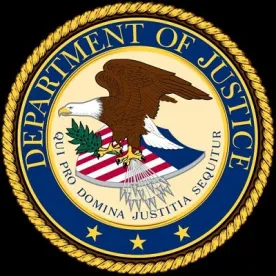On April 14, a jury in the Eastern District of Texas handed the U.S. Department of Justice its first loss in prosecuting an alleged wage-fixing crime and the first verdict ever in a criminal prosecution of wage-fixing under Section 1 of the Sherman Act.
On April 14, a jury in the Eastern District of Texas handed the U.S. Department of Justice its first loss in prosecuting an alleged wage-fixing crime and the first verdict ever in a criminal prosecution of wage-fixing under Section 1 of the Sherman Act.[1]
The DOJ alleged that Mr. Neeraj Jindal and Mr. John Rodgers, violated the Sherman Act by agreeing to lower pay rates to physical therapists and physical therapists assistants,[2] classifying this behavior as a per se violation of antitrust laws.[3] Additional charges included conspiring to commit a crime and obstructing the Federal Trade Commission’s investigation related to the alleged wage-fixing. After a nine-day trial, the jury found the defendants not guilty of wage-fixing in violation of the Sherman Act, and not guilty of the related conspiracy charge.[4] However, the jury found Mr. Jindal guilty of obstructing the FTC’s investigation, which exposes him to up to a five-year prison sentence.[5]
While the DOJ did not secure a conviction for wage-fixing against either defendant, it secured a favorable pre-trial decision that could embolden continued prosecution of wage-fixing cases.
Impacts of This Case
Early in the case, the Defendants moved to dismiss the wage-fixing counts arguing that the wage fixing was not a per se violation of the Sherman Act, and for that reason, the wage-fixing count should be dismissed for failure to state an offense.[6] Defendants argued that wage fixing did not fall within the small subset of restraints—price fixing, market allocation, bid rigging, and certain types of boycott groups—that are deemed per se unreasonable restraints on trade.[7] The court disagreed, finding that fixing wages is a form of price fixing and is therefore a per se unreasonable restraint.[8]
While the DOJ was not successful in prosecuting the wage-fixing counts against Mr. Jindal and Mr. Rogers, the court’s decision that wage fixing is a form of price fixing will likely bolster the Federal government’s antitrust enforcement efforts focused on wage fixing and no-poach agreements, an effort first announced in October 2016.[9] This decision will likely also be oft-cited in civil cases alleging wage-fixing agreements to support the argument that wage-fixing is a per se unreasonable restraint which violates the Sherman Act.
Takeaways
First, the DOJ is serious about prosecuting labor-related antitrust cases; this includes wage-fixing cases as seen in U.S. v. Jindal, and no-poach agreement cases as seen in another recent trial resulting in a DOJ loss, U.S. v. DaVita Inc.[10] And while these wage-fixing cases might prove difficult to prosecute, the pre-trial ruling that wage fixing is a type of per se unreasonable price-fixing restraint, will likely smooth the path for the DOJ in indicting these types of cases in the future. The recent losses do not appear to have dissuaded the DOJ from continuing to pursue these cases. Assistant Attorney General Jonathan Kanter believes there is public desire for prosecution of these types of cases, and indicated that the DOJ would “stick with it” despite the recent losses.[11]
Second, when Federal antitrust enforcers announced a focus on wage-fixing and no-poach agreements, they also provided related Antitrust Guidance for Human Resource Professionals.[12] All employers should familiarize themselves with this guidance and train HR professionals and senior managers involved employment decisions. This information is helpful in avoiding conduct that could subject an employer to criminal or civil liability for alleged wage-fixing agreements.
Third, if the FTC or DOJ opens an investigation into alleged antitrust violations, the party should avoid acting in any manner that could be interpreted as obstructing investigation. Mr. Jindal was found not guilty of the agreeing to fix wages in violation of the Sherman Act, he was convicted for obstructing the FTC’s investigation. Antitrust claims are complex and can be difficult to prove; obstructing justice is a charge more familiar to jurors and easier to understand.
FOOTNOTES
[1] Section 1 of the Sherman Act outlaws only unreasonable restraints on trade, despite the broad language of the statute. See State Oil Co. v. Khan, 522 U.S. 3, 10 (1997). There are two rules of decision used by courts to assess whether conduct amounts to an unreasonable restraint on trade: (1) the rule of reason—applied in a majority of antitrust cases to determine whether the alleged restraint has anticompetitive effects that harm consumers—and; (2) per se unreasonable restraints—applicable to a discrete subset of restraints that are plainly anticompetitive and “always or almost always tend to restrict competition and decrease output.” See U.S. v. Jindal et. al, No. 4:20-cr-00358, 2021 WL 5578687, at *2 (E.D. Tex. Nov 29, 2021) (quoting Bus. Elecs. Corp. v. Sharp Elecs. Corp., 485 U.S. 717, 723 (1988)).
[2] U.S. v. Jindal et. al, No. 4:20-cr-00358, First Superseding Indictment [ECF No. 21].
[3] Id.
[4] Id. at Jury Verdict [ECF No. 112].
[5] Id.
[6] See e.g. id., at Jindal’s Motion to Dismiss [ECF No. 36]; see also supra, n.2
[7] See e.g. U.S. v. Jindal et. al, No. 4:20-cr-00358, at Jindal’s Motion to Dismiss [ECF No. 36]
[8] See U.S. v. Jindal et. al, 4:20-cr-00358, 2021 WL 5578687, at *5 (“[T]he scope of anticompetitive conduct that constitutes price fixing is broad—it covers agreements among buyers in the labor market.”)
[9] Federal Trade Commission, “FTC and DOJ Release Guidance for Human Resource Professionals on How antitrust Law Applies to Employee Hiring and Compensation.”
[10] See e.g. U.S. v. DaVita Inc. et al, No. 1:21-cr-00229-RBJ (D. Co. April 20, 2022), at Judgments of Acquittal [ECF Nos. 266-67].
[11] See Jack Queen, DOJ Antitrust Head: No ‘Chickenshit Club’ Despite Losses, Law360, April 21, 2022.
[12] The HR Guidance issued by the DOJ and the FTC is available online.




 />i
/>i
